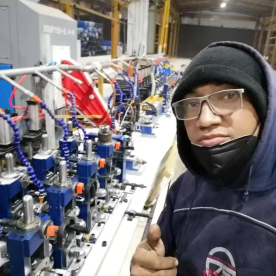[Spare parts for tube mill]Comprehensive Guide to Sourcing and Maintaining Spare Parts for Tube Mill Operations: Ensuring Efficiency and Longevity
News 2024-8-16
****
Comprehensive Guide to Sourcing and Maintaining Spare Parts for Tube Mill Operations: Ensuring Efficiency and Longevity
Understanding Tube Mills
Tube mills are specialized machinery designed to roll and form metal sheets into tubes of varying sizes and specifications. They operate by welding, bending, and shaping metal, which can be a highly complex process. Given the intricacies involved, any issue that arises during operation can lead to significant downtime and loss of productivity. Therefore, it is crucial for businesses relying on tube mills to maintain a well-stocked inventory of spare parts that can be used for repairs and maintenance.
Common Spare Parts for Tube Mills
When it comes to spare parts for tube mills, several components are integral to their operational efficiency. Here’s a rundown of some of the most common spare parts that are frequently required:
1. **Rolling Mill Rolls**: These are vital for forming and shaping the metal during the tube-making process. Regular wear and tear can result in the degradation of these rolls, necessitating their replacement to maintain product quality.
2. **Forming and Welding Equipment**: Tube mills typically utilize forming machines that bend and shape the metal. Welding equipment may also need replacement parts, such as tips and nozzles, to ensure strong seams in the finished tubes.
3. **Bearings and Gearboxes**: Bearings facilitate smooth movement, while gearboxes are responsible for transmitting power from the motor to the machine components. Both of these parts are critical for machine efficiency and must be inspected regularly to avoid failures.
4. **Drives and Motors**: The electric motor powers the entire tube mill operation. Should the motor or any associated drives fail, the mill could come to a halt, making these components crucial spare parts to have on hand.
5. **Hydraulic Components**: Many tube mills utilize hydraulic systems for various functions. Hydraulic pumps, hoses, and cylinders are commonly needed spare parts that can wear out over time.

Comprehensive Guide to Sourcing and Maintaining Spare Parts for Tube Mill Operations: Ensuring Efficiency and Longevity
Sourcing Spare Parts
When it comes to sourcing spare parts for tube mills, businesses have multiple options. Selecting a reliable supplier is crucial for ensuring the quality and compatibility of the spare parts. Here are some tips for sourcing:
1. **Original Equipment Manufacturer (OEM) Parts**: While they may be more expensive, OEM parts ensure compatibility and meet the original specifications of the tube mill.

Comprehensive Guide to Sourcing and Maintaining Spare Parts for Tube Mill Operations: Ensuring Efficiency and Longevity
3. **Local vs. Global Suppliers**: Depending on your location and the urgency of the need, you may opt for local suppliers for faster delivery times or global suppliers that may have a more extensive inventory.
4. **Inventory Management**: Maintain an efficient inventory system to track the usage of spare parts. Understand which parts are the most frequently required to ensure that you are maintaining adequate stock levels.
Maintenance Practices
To minimize the need for spare parts, adopting proactive maintenance practices is crucial. Regular inspections, lubrication, and timely replacements of worn-out parts can significantly extend the life of a tube mill. Techniques such as predictive maintenance using data analytics can also help in forecasting potential failures before they occur.
Conclusion
In conclusion, the operational efficiency of tube mills heavily depends on the availability and quality of spare parts. Understanding the common components, sourcing strategies, and maintenance practices can help ensure consistent performance and long-lasting machinery. By investing in proper maintenance and availability of essential spare parts, manufacturers can mitigate downtime, improve productivity, and achieve overall success in their tube production processes.
